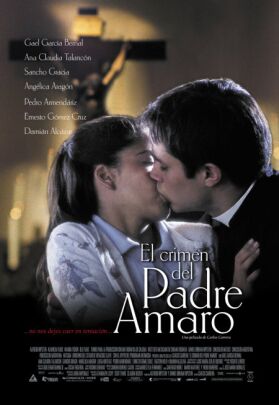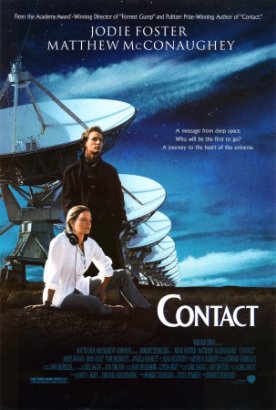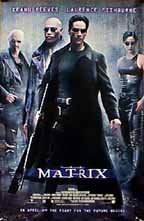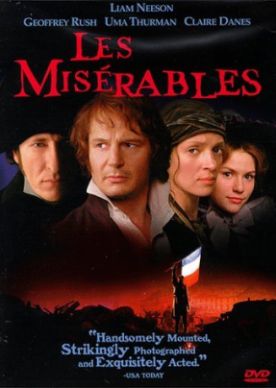Melancholia
The English word melancholy and its cognates in other European languages comes from the Greek for “black bile,” one of the four humors of Galenic medicine whose predominance in an individual was thought, up until about 150 years ago, to determine his or her personality type. The melancholy man — thoughtful, reclusive, tending to a gloomy outlook on things — was a recognized dramatic character and often, as in the case of Jacques in Shakespeare’s As You Like It, rather a figure of fun to more extroverted, high-spirited types. To this day, we recognize the latent absurdity in projecting onto the world the merely private state of mind which produces the melancholy type. It’s a form of self-pity and self-importance that is always unattractive and often ridiculous, even to those who might otherwise be in sympathy with the sufferer. When Skeeter Davis sang of “The End of the World,” she could only have been appealing to teenagers who had not yet learned the self-mastery and self-detachment that comes with maturity.
The movie business has long found that same teen audience too profitable to want to push it beyond its natural if absurd self-absorption. In Girl, Interrupted poor Brittany Murphy, who later came to a sad end herself, played a character who hanged herself to the strains of Miss Davis’s lugubrious ballad as if the film-makers were utterly deaf to its irony. Lars von Trier’s Melancholia goes upmarket with the music, using endless repetitions of Wagner’s Prelude and Liebestod from Tristan und Isolde, but with the same purpose and very much the same result. What is sublime in the opera becomes ridiculous in the movie not only through quotation and repetition, not only through a reduction of the former’s heroic scale to the level of family soap opera, but because Mr von Trier, as melancholy a man as Jacques himself, is able to put no distance between himself and his depressed heroine Justine (Kirsten Dunst). The latter’s adoption of Skeeter Davis’s attitude to disappointment is Mr von Trier’s own — or least he affected to make it his own before an audience in Berlin recently when he said: “I hope a catastrophe is coming because everything is getting a little dull.”
He, like Justine, has suffered from depression, which adds to the symbolic import of the fact that Melancholia also happens to be the name of the planet, supposedly hidden by the sun until the action of the film begins, on an apparent collision-course with the earth. What do you suppose are the odds of that? The planet’s fiery destruction thus becomes a synecdoche for the heroine’s unhappiness, and it is difficult — deliberately difficult, I would say — to separate the fabricated events of the film which threaten a literal End of the World from the feelings of the fabricator. Justine obviously speaks for her auteur when she says that “the earth is evil; we don’t need to grieve for it. Nobody will miss it.” And, in case we didn’t get the point, “All I know is life on earth is evil. I know we’re alone.” The best you can say about such posturing is that it mistakes a private feeling for an objective statement of fact. And it is the director as much as his character who is doing the posturing.
But Mr von Trier takes his time bringing us to the apocalypse (or, possibly, not-apocalypse) of the movie’s conclusion. The first hour or so of his more than two-hour picture hardly mentions the fate in store for the world and instead concentrates on Justine’s wedding reception at which she and the groom, Michael (Alexander Skarsgaard), arrive two hours late after their limo gets stuck — much to the fury of her sister Claire (Charlotte Gainsbourg) and Claire’s husband John, who owns the golf resort where the reception is to be held. But Justine and Michael just laugh about it, and Justine insists on visiting her horse, Abraham, in the stables before even more belatedly joining her guests. These include an unusual number of people — especially Justine’s mother (Charlotte Rampling), father (John Hurt) and employer (Stellan Skarsgaard) who are willing to court public embarrassment in the cause of lively cinema. John is also by way of being that stock figure in von Trier films, the bullying imposter of a husband who victimizes his wife under the guise of loving and protecting her.
There is some value to be had, perhaps, out of the comedy of embarrassment in this part of the film, but it really has nothing to do with what happens in Part II, the End of the World segment. Like nearly all cinematic apocalypses, this is really a thinly disguised political statement, which in Mr von Trier’s case means, I guess, the kind of madcap nihilism that got him banned from the Cannes Film Festival last year for confessing to Nazi sympathies. I think this confession was no more to be taken seriously than his declaration in the film that “life on earth is evil” or that he would welcome a catastrophe to relieve the boredom. He just likes being a provocateur, as he showed at the Berlin appearance (admission charge, 12 Euros) when he crowed: “The Palm [d’Or] is given out every year; I don’t remember the last time they gave out the Persona Non Grata.” It tells you all you need to know about him, and his films, that the audience cheered this, as it did some of his routine anti-Americanism on the same occasion. Those cheers, or their equivalent, are also what he is going for in Melancholia, and he knows how to get them. It’s not by making good movies.
Discover more from James Bowman
Subscribe to get the latest posts to your email.






